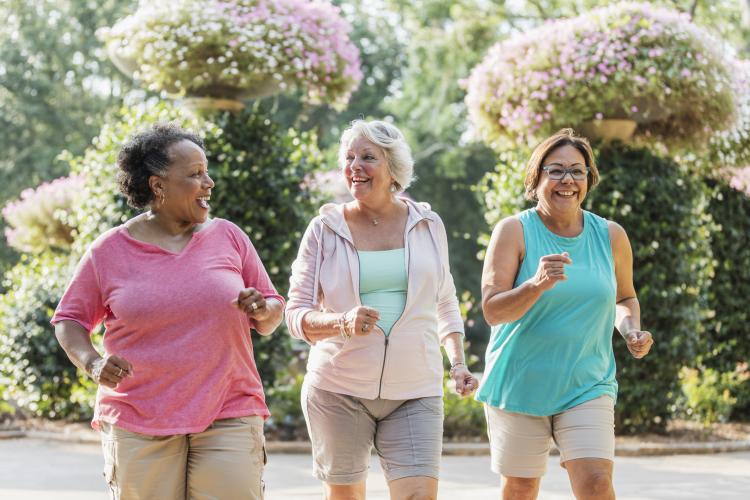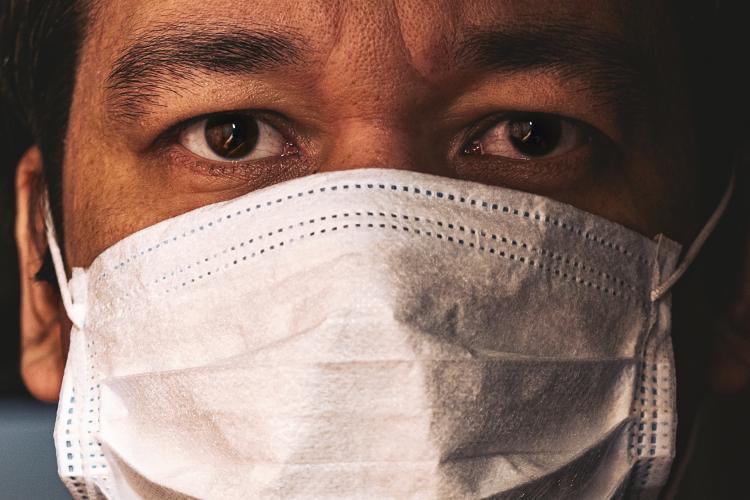Research Labs and Initiatives
Faculty in the Department of Biobehavioral Health conduct research across a broad range of biobehavioral domains. Six themes that frequently occur in our research are:
-
sleep and health, and
Additionally, biobehavioral health faculty have expertise in many areas, including behavioral neuroscience, behavioral endocrinology, psychoneuroimmunology, genetics, behavioral pharmacology, health promotion, health psychology, epidemiology, health disparities, social psychology, socio-ethical dynamics, health behavior, and cognition. Different labs may work in multiple areas listed below, but each lab is only listed once.
Addiction and Risk Behavior

Addiction and risk behavior exist at the complex intersection of biology and behavior, making this a natural topic of study for BBH Researchers.
Researchers address a broad array of relevant topics using emergent technology and cutting edge research methods.
- Addiction and Innovative Methods (AIM)
-
Research in the Addiction and Innovative Methods (AIM) Lab advances knowledge on adolescent and adult substance use behavior through innovative statistical methods applied to cross-sectional, longitudinal, and intensive longitudinal data. Our work includes the use of latent class analysis (LCA) to address the complexity of behavior and time-varying effect modeling (TVEM) to uncover change across multiple time scales.
PI: Stephanie Lanza
- Alcohol Habits in Daily Life
-
The Alcohol Habits in Daily Life Lab is interested in understanding the connections between stress, affect, health behaviors, including drinking and substance use, in the day-to-day lives of adolescents and young adults. The lab uses advanced statistical modeling and ambulatory assessment methods, including daily diaries, ecological momentary assessments (EMA), and wearable biosensors in their investigations.
PI: Michael Russell
- Behavioral Neurogenetics
-
The Behavioral Neurogenetics Lab is interested in how genes modulate complex behaviors. Research in the lab focuses on the role of genetics in complex disorders. We examine whether genetic variation influences behaviors and try to elucidate the biological mechanism through which this is occurring.
PI: Helen Kamens
- Decision Neuroscience
-
Research in the Decision Neuroscience Lab focuses on decision-making under uncertainty because these conditions give rise to health risk behaviors like substance use. Ultimately, we want to use our knowledge of the neural and behavioral mechanisms that support decision-making to engineer improved health outcomes.
- Molecular Genetics Laboratory
-
The goal of the Molecular Genetics Laboratory is to understand the molecular basis of addiction. We focus on human genetic studies and characterization of newly discovered sequence variants in the Dopamine Transporter gene (SLC6A3).
- Neurobiological Investigation of Learning and Addiction
-
The Neurobiological Investigation of Learning and Addiction (NILA) lab investigates how learning-related changes in the strength of neuronal connections in the brain not only underlie memory formation and storage but are also affected by nicotine, alcohol, and other drugs. Our goal is to use genetic, pharmacological, behavioral, and molecular techniques to study the effects of these drugs on the neurobiology of learning and memory and the interaction with development.
PI: Tom Gould
- Prevention Research to Optimize (PRO) Health
-
The Prevention Research to Optimize (PRO) Health Lab specializes in peer, parent, and feedback interventions to help reduce drinking and other risky health-related behaviors in adolescents, college students, and adults. The research conducted in the lab is considered to be at the forefront of both the alcohol and skin cancer fields.
PI: Rob Turissi
- Smoking and Health Behavior
-
The Smoking and Health Behavior Lab seeks to contribute to the scientific understanding of a range of smoking behaviors including smoking onset, the experience of nicotine addiction, nicotine withdrawal and smoking cessation.
- Substance Use Neuroscience (SUN)
-
The Substance Use Neuroscience (SUN) laboratory investigates changes in brain function in relation to substance abuse disorders. Researchers use tools from cognitive neuroscience to better understand the neural circuits that contribute to all stages of substance use disorders, from the initial development to recovery.
PI: Eric Claus
Cardiometabolic Health and Obesity

Heart disease is the leading cause of death in the United States, and cardiometabolic factors like inactivity and diet are some of the leading behavioral causes of preventable death
BBH Researchers are examining ways to promote healthier behavior and reduce obesity to promote heart health and human longevity.
- Biobehavioral Population Health Lab
-
We aim to address health disparities caused by social and genetic factors through behavioral interventions. Our approach is multidisciplinary, incorporating human genetics, social epidemiology, and positive psychology. Daily activities involve in-depth statistical analysis of large epidemiological datasets, as well as the collection of biological samples and psychological and behavioral data from human participants.
PI: Harold Lee
- Family and Child Health Project
-
The Family and Child Health Project focuses on identifying behavioral, biological, and neurocognitive factors associated with the development of obesity in children, with a specific focus on children exposed to poverty and other adverse childhood experiences.
PI: Lori Francis
Health and the Environment

The natural and built environment can impact human health in a wide variety of ways.
BBH researchers study how natural factors, like the availability of drinking water, and human-driven factors, like the dangers of farm work, affect human behavior and health.
- Ethnographic and Qualitative (EQUAL) Studies in Health
-
The Ethnographic and Qualitative (EQUAL) Studies in Health lab aims to explore intersections between culture, environment, and health equity. We use a diverse range of qualitative and quantitative methodologies, including community-engaged approaches that combine ethnography, interviews, surveys, and biomarkers.
PI: Amy Snipes
- Water, Health, and Nutrition
-
The Water, Health, and Nutrition Lab studies cross-cultural variation in how humans meet their water needs across ecological contexts and how this relates to health, hydration, nutrition, stress, and disease risk. Our research examines how humans respond to varying degrees of water access and insecurity, nutritional and epidemiological transitions, changing environments and resources availability, and shifting socioeconomic circumstances.
PI: Asher Rosinger
Health Disparities and Health Equity

Disparities in health outcomes occur along many different attributes: race, rurality, gender, sexual identity, and more.
BBH Researchers are identifying health disparities and seeking ways to build a more equitable society.
- Epidemiology and Genetics across Populations & Societies (Epi-GaPS)
-
The Epidemiology and Genetics across Populations & Societies (Epi-GaPS) Lab seeks to 1) elucidate the complex etiology of chronic diseases, and 2) identify drivers of health disparities in the United States. The lab conducts bio-psychosocially integrated studies of reproductive and cardiovascular traits in under-studied and marginalized populations.
- Health Disparities and Equity Lab
-
The Health Disparities and Equity lab focuses on social justice and the history and social epidemiology of illnesses and health behavior affecting African Americans including cigarette smoking and COVID-19. Global health topics in France and Africa are also part of his research interests.
PI: Gary King
- International Health & Nutrition Equity Lab
-
The International Health & Nutrition Equity lab designs, implements, and evaluates interventions that aim to improve the health and nutrition of vulnerable populations globally.
PI: Stephen Kodish
- Rural Health Disparities
-
The Rural Health Disparities (RHD) Lab studies rural-urban and within rural health disparities in the U.S. that have implications for policy, practice, and implementation. We study how place helps shape health outcomes, notably differences in policy contexts, environmental exposures, built environments, economic contexts, and measures of rurality.
PI: Danielle Rhubart
Sleep and Health

Sleep exists at the intersection of behavior, biology and health.
BBH researchers seek to answer a wide range of sleep-related questions including:
- What causes sleep deficiency?
- What are the consequences of sleep deficiency?
- How do sleep and circadian rhythms affect human health?
- Sleep, Health, and Society Collaboratory
-
Research in the Sleep, Health, and Society Collaboratory spans the causes of sleep deficiency in the workplace, home and society, the health consequences of sleep deficiency, especially cardiometabolic and cognitive outcomes, and digital biomarkers in field and intervention studies.
PI: Orfeu Buxton
- Sleep and Human Health (Shh)
-
The focus of the Sleep and Human Health (Shh) lab is to examine the effects of sleep and circadian rhythms on human health and well-being. Our research includes longitudinal, experimental, and intervention studies to understand how environmental and contextual factors influence sleep and circadian health and how sleep, in turn, influences various health outcomes.
PI: Anne-Marie Chang
Stress and Health

Stress can significantly affect a person's physical, mental, and emotional health.
BBH researchers study a wide range of topics related to how stress affects health and how those effects can be understood and mitigated.
- Behavioral Neuroendocrinology
-
The Behavioral Neuroendocrinology Lab studies the biological and environmental processes associated with the development of fear and anxiety. We use animal models to experimentally test the influence of early life environmental and biological experiences on adult susceptibility and resilience to developing behavioral and biological symptoms of fear and anxiety.
PI: Sonia Cavigelli
- Biobehavioral Health Studies
-
The Biobehavioral Health Studies Laboratory incorporates both human and animal models to evaluate the multiple biological and behavioral factors that underlie individual stress responses.
PI: Laura Klein
- Disparities Related to Individual Variance in Executive Functioning and Stress (DRIVES)
-
The Disparities Related to Individual Variance in Executive Functioning and Stress (DRIVES) lab is dedicated to studying the neurological, biological, and behavioral pathways through which emotions and interpersonal relationships impact health. We utilize a multi-disciplinary framework when designing our studies and we often include the use of innovative technologies.
PI: Kyle Murdock
- Stress and Aging (Shalev Lab)
-
The Shalev Lab leverages behavioral, physiological and molecular methods, across multiple and dynamic levels of analysis, to measure the aging process as it begins in early-life and to test how this process is affected by environmental stress exposures. Its research aim to inform new targets for intervention studies to reverse the damaging effects of stress on peoples' bodies and minds.
PI: Idan Shalev
- Mechanics of Emotion, Stress and Health (MESH)
-
The Mechanics of Emotion, Stress and Health (MESH) Lab seeks to better understand the associations between psychological stress and stress responses with physical health and well-being. A major emphasis is the role of emotion and related processes in the connection between stress and health. We examine diverse health-related outcomes, including inflammation, cardiovascular disease risk, cognitive aging, and physical pain. We also study individual differences in how such phenomena are linked and use complex models that integrate behavior and social/demographic factors.
- Stress and Immunity
-
Research in the Stress and Immunity Laboratory focuses on how stress affects various aspects of health (e.g., cognitive decline, dementia risk, preterm birth, cardiovascular health, mental health, tissue repair) with a focus on alterations in the immune system, particularly inflammation. Both basal (systemic) inflammation and more dynamic immune responses are examined, such as ex vivo mitogen stimulation of blood, along with other bodily fluids.
- Stress and Nutrition
-
The Stress and Nutrition Research Group and the Vascular Health Interventions Lab seeks to measure the effects of specific foods and nutrients on multiple coronary risk markers, including cardiovascular responses to stress.
PI: Sheila West
- Stress, Health, and Daily Experiences (SHADE)
-
The Stress, Health, and Daily Experiences (SHADE) Lab explores ‘Mind-Body’ issues as they relate to physical health and well-being. We study the dynamic interplay amongst stress, mood, behavior, social factors, and physiology, as well as interventions that might promote enhanced health and/or well-being.
PI: Joshua Smyth
- Stress Psychophysiology
-
The Stress Psychophysiology Lab aims to characterize the physiological dynamics underlying naturalistic stress and emotion. We seek to understand how these dynamics relate to health-risk factors pertaining to anxiety, decision-making, cardiovascular disease, and substance use.
PI: Derek Spangler
- Youth's Experiences and Later Health Lab
-
The Youth's Experiences and Later Health Lab focuses on how youth's experiences and environments--including child maltreatment, poverty, family characteristics, and more--impact long-term health and chronic disease risk.
PI: Hannah Schreier
